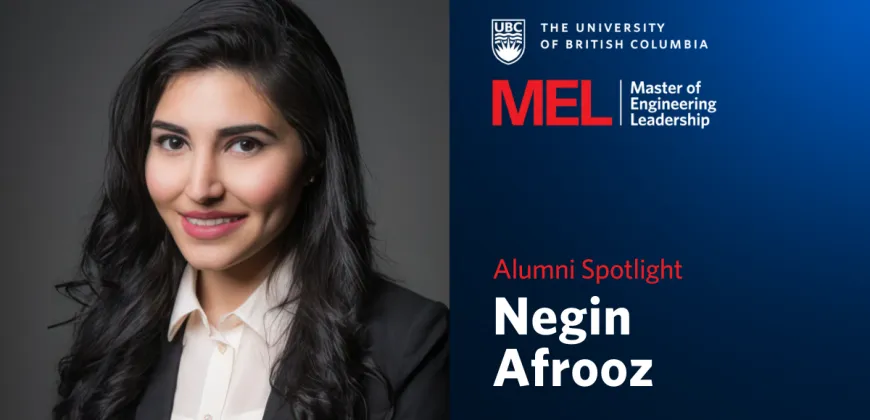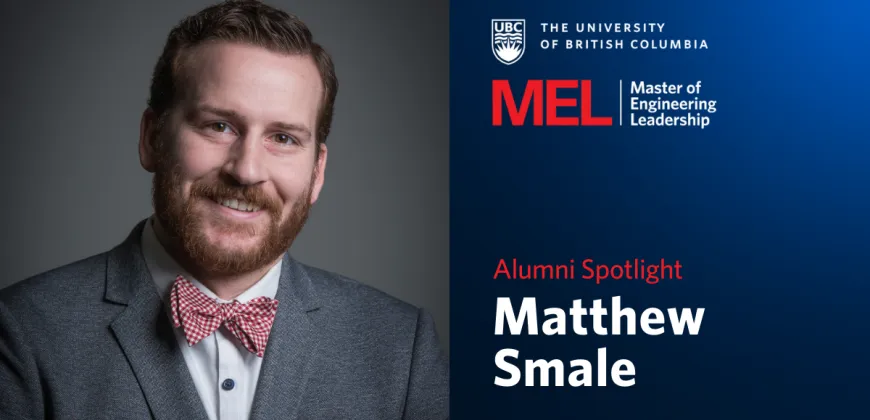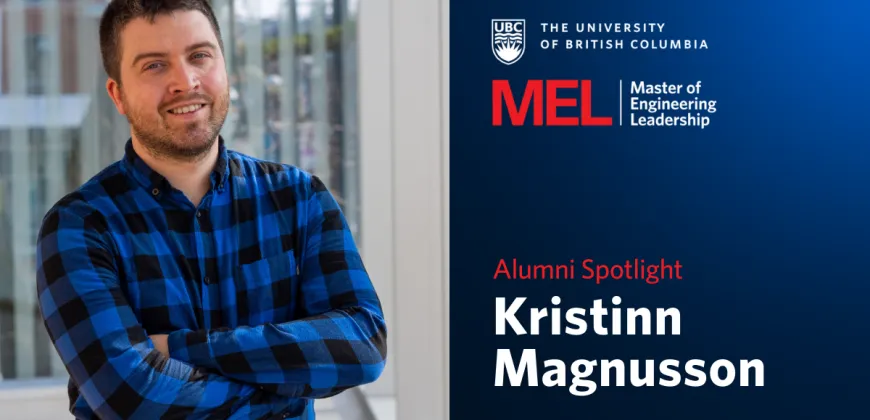Alumni Spotlight: Calvina Martin
After graduating in 2012 with a degree in materials engineering from UBC, Calvina Martin worked with Consolidated Biofuels — a commercial biodiesel production facility in Delta, BC — and two of its subsidiary companies for almost four years.

After graduating in 2012 with a degree in materials engineering from UBC, Calvina Martin worked with Consolidated Biofuels — a commercial biodiesel production facility in Delta, BC — and two of its subsidiary companies for almost four years.
She progressed up through the organization, initially starting out as a quality control technician, and was ultimately promoted to quality control lead. In this position, among other responsibilities, she was in charge of managing a lab, conducting quality control tests, training new people, maintaining equipment and troubleshooting issues. She also worked alongside the firm’s chemical engineer on research and development projects, and provided support in scaling up a new polyol production process from 5L laboratory scale to 1000L pilot plant production.
“I liked my job, but I wanted something with stronger connections to my interest in materials engineering,” she says. “I saw the MEL program as helping me realign my career to an area where I have expertise and wanted to work.”
UBC’s Master of Engineering Leadership (MEL) in Advanced Materials Manufacturing was an easy choice for other reasons, too: Calvina says she had enjoyed her time at UBC as an undergrad and liked the idea of a one-year professional master’s degree that would deepen her technical and business skills.
Technical coursework connects to industry challenges
Project-based technical courses make up about 60 per cent of the program. For Calvina, the courses’ use of case studies made for powerful learning experiences that were relevant to working in industry. While all classes highlighted industry connections, one in particular really stood out.
“Our Case Studies in Advanced Materials Manufacturing class started off with presentations from two industry professionals. One was an expert in life-cycle analysis and one shared his experience of working with Ford on the F-150 and using an aluminum body to save weight and make it more fuel efficient. For our course project, we modelled the use of different materials for door panels — trying different materials and changing the thickness according to the specifications. We also had to do a life-cycle analysis to see how our material choices would affect carbon dioxide emissions over the whole life of the vehicle — from mining the raw materials to the vehicle’s end of life.”
A newfound confidence in business and leadership
Calvina says that she had little business and leadership experience prior to the MEL. Her classes in various aspects of project management, business strategy and market evaluation exposed her to new ways of thinking and broadened her skills.
Of all the business classes, she says the summer boot camp course — with its immersion in six core business competencies — was the most intense and rewarding. “We were always having to give presentations,” she says.
“This was totally new for me, and although I wouldn’t say I love it, I have a newfound confidence that comes from all that practice. The class was also a great experience because we were grouped with people from the other programs and were able to work alongside people from different backgrounds, with various levels of experience and new ways of thinking.”
Ready to make a deep contribution
Between finishing the program at the end of December and the convocation ceremony in May, Calvina travelled to Indonesia to provide technical support to a company that imports and exports plastic machinery. When she returns to Canada, she’s eager to apply her enhanced technical and business skills to the materials engineering industry.
“With the new skills I have in leadership and management I think I can make deeper contributions to organizations in this exciting and quickly changing field.”


